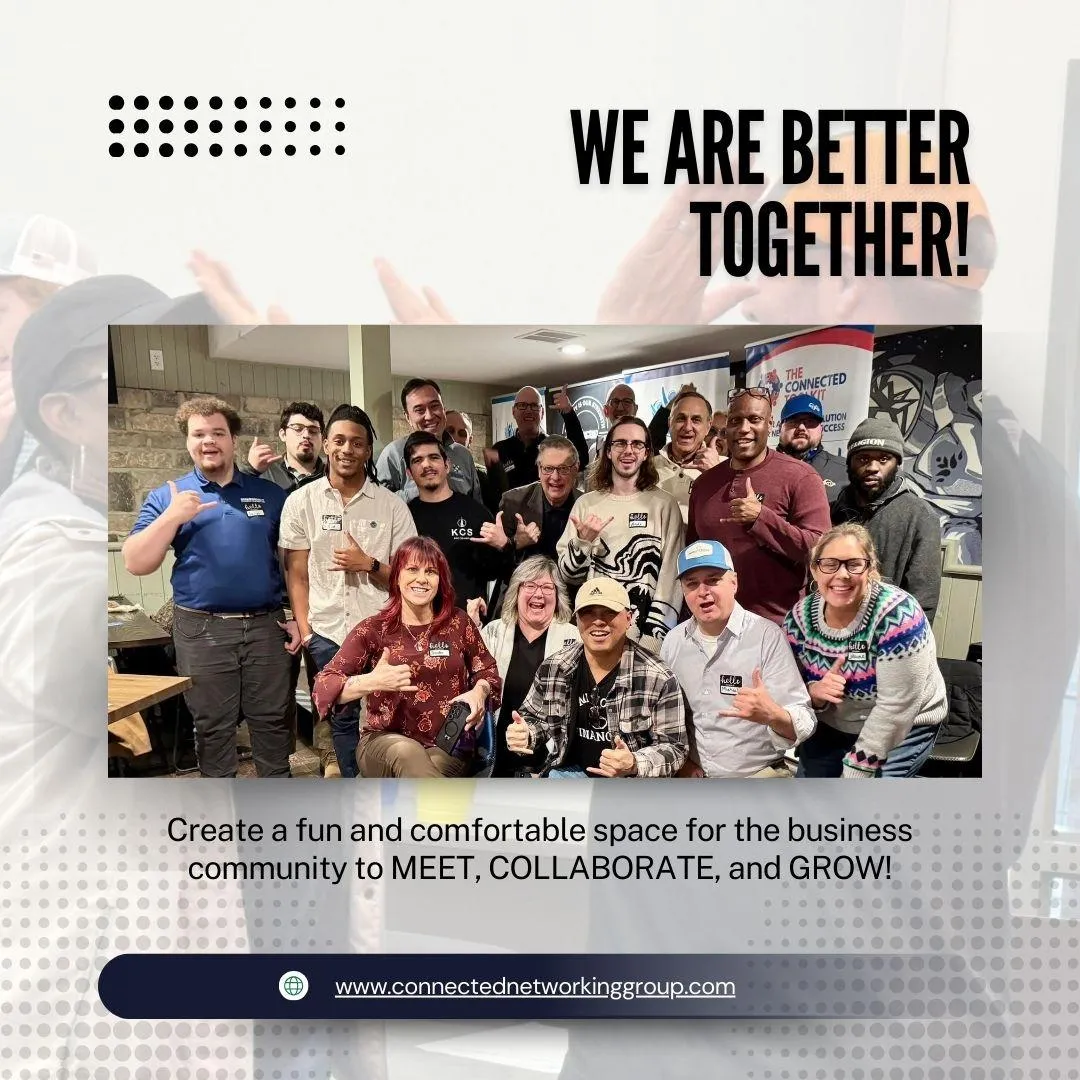Blogs

Growing Together: The Role of Community in Achieving Success
Growing Together: The Role of Community in Achieving Success
In an age dominated by individualism and rapid digital transformation, the power of community remains a cornerstone for personal and professional success. Whether it's through formal networking groups, neighborhood initiatives, online forums, or informal circles of support, communities play a pivotal role in shaping our growth, resilience, and achievements.
This blog explores the multifaceted role of community in achieving success, highlighting how collective strength, shared knowledge, and mutual support can propel individuals and groups to new heights. We'll also connect these insights to how platforms like Connected Networking Group exemplify the power of community in action.
Understanding Community: More Than a Group of People
At its core, a community is a group of individuals connected by shared interests, values, goals, or geography. But beyond definitions, a true community is characterized by interaction, support, trust, and a sense of belonging. It transcends mere association to become a living, evolving network that fosters growth through connection.
The Emotional and Psychological Benefits of Community
1. Belonging and Identity
Humans are inherently social creatures. Being part of a community affirms our identity and helps us feel seen, heard, and valued. This sense of belonging boosts confidence and encourages individuals to take risks and pursue ambitions they might otherwise hesitate to explore.
2. Emotional Support
Communities provide emotional anchors during both triumphs and tribulations. Whether it's celebrating a promotion or navigating a layoff, having a supportive network reduces stress and improves overall mental health. Studies consistently show that strong social ties are linked to lower rates of anxiety, depression, and burnout.
3. Shared Motivation
When you're surrounded by like-minded individuals who are striving for growth, it creates a collective momentum. Witnessing others succeed can be highly motivating, and a community's shared goals can reignite passion and drive.
Practical Advantages of Community for Success
1. Knowledge Sharing
One of the most tangible benefits of community is the ability to share and access knowledge. Whether through formal mentorship, collaborative problem-solving, or casual advice, communities accelerate learning and decision-making.
2. Opportunities for Collaboration
Communities create fertile ground for collaboration. Partnerships form naturally among members who share values and complementary skill sets. This spirit of cooperation often leads to joint ventures, projects, and new business ideas.
3. Accountability
When you're part of a community that values growth and progress, you're more likely to stay accountable to your goals. Publicly committing to objectives within a trusted circle encourages follow-through and continuous improvement.
4. Networking and Exposure
Through community, individuals gain access to broader networks that might otherwise be unreachable. This can lead to job opportunities, referrals, speaking engagements, or invitations to high-impact projects.
The Role of Community in Professional Development
In professional contexts, community takes on many forms: coworking spaces, industry associations, mastermind groups, alumni networks, and digital forums. All offer unique benefits that contribute to professional success.
Case Study: Connected Networking Group
The Connected Networking Group is a prime example of how a community-centered approach to networking can lead to sustainable success. By prioritizing authentic relationships, value-driven interactions, and consistent engagement, CNG creates an ecosystem where professionals not only connect but thrive together. Members benefit from mentorship, access to new opportunities, and a deep sense of purpose within their industry circles.
How to Build and Nurture Your Community
1. Be Intentional About Participation
Show up consistently, contribute value, and engage authentically. The more you invest in your community, the more you get in return.
2. Find Your Tribe
Not all communities will resonate with your values or goals. Seek out groups where you feel aligned and energized. Whether it's a professional organization or a local volunteer group, fit matters.
3. Create Spaces for Connection
Don’t wait for community to find you. Host gatherings, initiate group chats, or start an online forum. Sometimes, leadership in community-building begins with a single invitation.
4. Celebrate Others
Acknowledging the successes of others fosters goodwill and strengthens bonds. Celebrate milestones, share testimonials, and offer public praise.
5. Practice Reciprocity
Give as much as you take. Offer help, resources, and encouragement without immediate expectations. Over time, this builds trust and deepens relationships.
The Ripple Effect of Strong Communities
The impact of community extends beyond the individual. When one member succeeds, the entire group is elevated. Communities generate ripple effects that influence families, organizations, and even industries. They inspire new ideas, catalyze change, and support innovation.
Whether you're looking to climb the corporate ladder, launch a business, or simply grow as a person, community is an indispensable asset.
Final Reflections: Growing Together Is Growing Stronger
The journey to success doesn’t have to be a solo expedition. In fact, the most fulfilling and sustainable success stories are those written together. Community is not just a support system; it's a springboard for opportunity, innovation, and collective triumph.
As we navigate the complexities of modern life and career, let us remember the power of connection. Engage deeply with your communities, nurture meaningful relationships, and recognize that in growing together, we grow stronger.
To experience this in action, explore the Connected Networking Group, where growth isn’t just encouraged; it’s expected, empowered, and celebrated.

